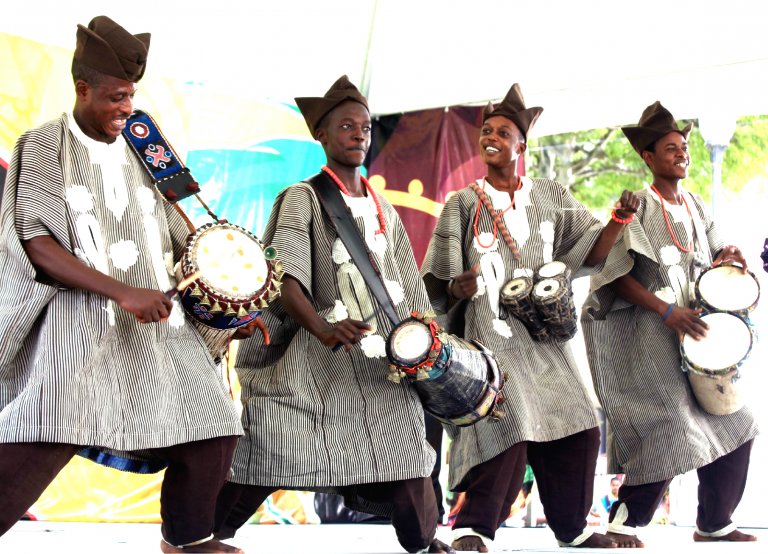Gese Dance
Dance is a true representation of our cultural heritage, traditions and belief. It brings people together, revealing beautiful and captivating stories about their history; usually with the accompaniment of songs and musical instruments such as drums.

Most times, dance associated with different tribes reflect stories that are particular to them. These stories may centre on love, victory, beauty, hard work, marriage, class, religion, natural elements, and may even be demonstrated through drama. Today, we would be exploring the Gese dance of the Yoruba people of southwestern Nigeria.
Read Also: Bata Dance
Gese is a religious dance rooted in the rituals, religion and social activities of the Yoruba people and popular among the people of Okeigbo and Ifetedo local government areas of Ondo and Osun states respectively. Gese dance draws its inspiration from a popular drum, “Gese” among Yoruba people. The Gese dance is usually performed for special occasions such as the coronation of an Oba (king) and as part of the rites of passage for the deceased.
The Gese dance is sometimes done for the appraisal of gods in Yoruba land. An interesting fact to note about the Gese dance is the assigning of unique beats and dance steps to different deities. Gese dancers interpret the patterns of drumbeats through their steps, gestures and postures and most times, the meanings can only be decoded by people within the same cultural context.
Gese dancers are always adorned with beautiful Aso-Oke outfits, holding a horsetail on their right hand. To enhance their aesthetics, dancers wear beads on their necks and wrists, and to strengthen the physical display of dancers, the Gese dance is usually performed without shoes.
Gese delves deeply into the religion and practices of people in Yorubaland from one generation to the other. This maintains chances for inclusion and development in the dance culture as more meaning, dance patterns and value can be added to the dance to reflect new cultural additions.
Interestingly, the Gese dance has been performed beyond Nigeria. Popular Gese dancer, Fatai Ojuade and his group took part in a dance drama in 1982, to represent the country at the XII Commonwealth Games, Warana Festival in Brisbane, Australia and for a cultural exchange visit in South Korea.
Have you ever witnessed the Gese dance performance before? You are welcome to share with us in the comment section.
